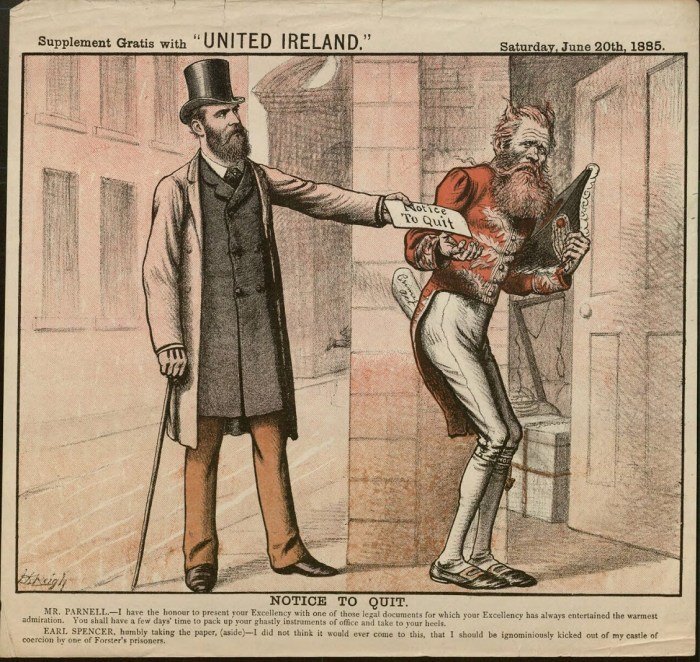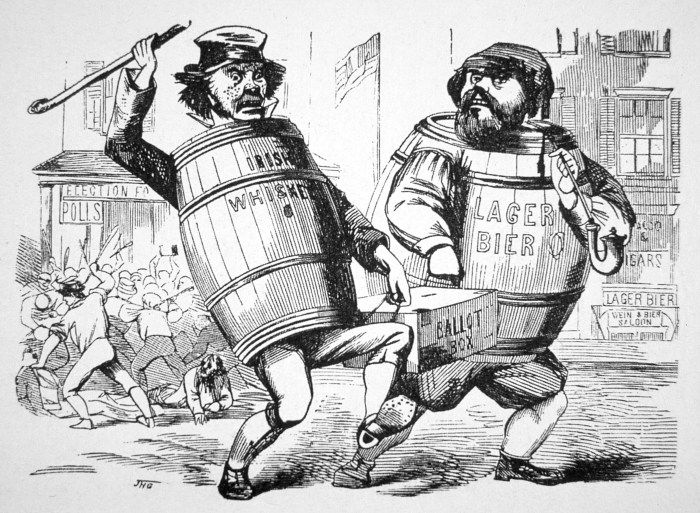Are the navigators anti catholic – Are the Navigators anti-Catholic? This question has sparked controversy and debate for decades, raising concerns about the relationship between the influential evangelical organization and the Catholic Church. In this article, we delve into the historical context, allegations of anti-Catholicism, the Navigators’ response, and the impact on the Catholic community, offering a comprehensive analysis of this complex issue.
Historical Context

The Navigators is a Christian organization founded in 1933 by Dawson Trotman. The organization’s mission is to “make disciples of all nations” through evangelism, discipleship, and leadership training.
The Navigators was founded during a time of great religious and political upheaval. The Catholic Church was facing increasing criticism from Protestants and secularists, and the world was on the brink of World War II. In this climate, the Navigators sought to provide a safe haven for Christians who were seeking to live out their faith in a changing world.
Relationship with the Catholic Church
The Navigators has always had a complex relationship with the Catholic Church. On the one hand, the Navigators has always been respectful of the Catholic Church and its traditions. On the other hand, the Navigators has also been critical of some of the Catholic Church’s teachings and practices.
In recent years, the relationship between the Navigators and the Catholic Church has improved. In 2014, the Navigators signed a joint statement with the Catholic Church on the importance of evangelization.
Allegations of Anti-Catholicism
The Navigators have been accused of anti-Catholic behavior on several occasions. These allegations have ranged from statements made by individual members to official policies of the organization.
One of the most common allegations is that the Navigators believe that Catholicism is a false religion. This belief is said to be based on the Navigators’ emphasis on the Bible as the sole source of authority for Christian faith and practice.
Catholics, on the other hand, believe that the Bible and Tradition are both authoritative sources of faith and practice.
Another allegation is that the Navigators discourage their members from attending Catholic churches or participating in Catholic sacraments. This allegation is based on the fact that the Navigators have their own churches and sacraments. However, the Navigators have stated that they do not discourage their members from attending Catholic churches or participating in Catholic sacraments.
The Navigators have also been accused of being intolerant of Catholics. This allegation is based on the fact that the Navigators have been critical of some Catholic practices, such as the veneration of Mary and the use of icons.
Sources and Credibility of Allegations
The allegations of anti-Catholicism against the Navigators come from a variety of sources, including former members of the organization, Catholic apologists, and secular journalists. The credibility of these allegations varies depending on the source.
Some of the allegations are based on personal experiences of former members of the Navigators. These allegations are often anecdotal and difficult to verify. However, they do provide some insight into the experiences of some Catholics who have interacted with the Navigators.
Other allegations are based on statements made by official representatives of the Navigators. These statements are more reliable than anecdotal evidence, but they do not necessarily reflect the views of all members of the organization.
Finally, some allegations are based on the Navigators’ official policies. These policies are publicly available and can be used to assess the organization’s views on Catholicism.
The Navigators’ Response

The Navigators have consistently denied allegations of anti-Catholicism, emphasizing their commitment to interfaith dialogue and cooperation.
Their efforts to address concerns include:
- Engaging in dialogue with Catholic leaders and organizations.
- Developing resources to promote understanding and cooperation between Protestants and Catholics.
- Participating in interfaith initiatives aimed at fostering unity and collaboration.
Effectiveness of Responses
The effectiveness of the Navigators’ responses in mitigating the perception of anti-Catholicism is difficult to assess.
While some Catholics have expressed appreciation for the Navigators’ efforts, others remain skeptical. The perception of anti-Catholicism persists in some circles, particularly among those who have had negative experiences with the organization.
Nonetheless, the Navigators’ commitment to interfaith dialogue and cooperation remains a significant step towards addressing concerns and fostering a more inclusive environment.
Impact on the Catholic Community
The allegations of anti-Catholicism against the Navigators have had a significant impact on the Catholic community. Many Catholics feel betrayed and hurt by an organization they once trusted. The allegations have also damaged interfaith relations between Catholics and evangelicals.
Reactions from Catholic Organizations, Are the navigators anti catholic
- The United States Conference of Catholic Bishops (USCCB) has issued a statement expressing concern about the allegations and calling for the Navigators to address them.
- The Catholic League for Religious and Civil Rights has called for the Navigators to be investigated by the FBI.
- The Catholic Archdiocese of Boston has banned the Navigators from operating in its schools.
Reactions from Individual Catholics
- Many Catholics have expressed their anger and disappointment with the Navigators on social media.
- Some Catholics have canceled their donations to the Navigators.
- Others have stopped attending Navigators events.
Perspectives and Interpretations

The allegations of anti-Catholicism against The Navigators have elicited diverse perspectives and interpretations. These viewpoints are influenced by various factors, including religious background, political affiliation, and personal experiences.
Religious Background
- Catholics:Some Catholics perceive The Navigators’ teachings as anti-Catholic due to their emphasis on personal conversion and their rejection of certain Catholic doctrines, such as the infallibility of the Pope.
- Non-Catholics:Individuals from non-Catholic backgrounds may not view The Navigators’ teachings as anti-Catholic, as they may not have the same level of familiarity with Catholic doctrine and practices.
Political Affiliation
- Conservatives:Some conservative Christians may align with The Navigators’ emphasis on traditional values and their opposition to certain progressive Catholic teachings, such as those on homosexuality.
- Liberals:Liberal Christians may view The Navigators’ teachings as intolerant and divisive, as they challenge the inclusivity and social justice values often associated with liberal Christianity.
Personal Experiences
- Positive Experiences:Individuals who have had positive experiences with The Navigators may be less likely to view their teachings as anti-Catholic, as they may focus on the personal growth and spiritual guidance they have received.
- Negative Experiences:Those who have had negative experiences with The Navigators may be more inclined to interpret their teachings as anti-Catholic, as they may have felt judged or excluded due to their Catholic beliefs.
To understand the allegations of anti-Catholicism against The Navigators, it is crucial to consider the diverse perspectives and interpretations that exist. Balanced and nuanced analysis requires acknowledging these differing viewpoints and recognizing that individual experiences and biases can shape how the issue is perceived.
Ongoing Dialogue and Reconciliation
In recent years, the Navigators have made significant efforts to engage in ongoing dialogue and reconciliation with the Catholic community. This process has involved a number of initiatives, events, and programs aimed at bridging divides and fostering mutual understanding and cooperation.
One key initiative has been the establishment of the Catholic-Evangelical Dialogue, a joint initiative between the Navigators and the Catholic Church in the United States. This dialogue has brought together leaders from both traditions to discuss issues of mutual concern, such as evangelization, discipleship, and social justice.
The dialogue has also provided a forum for addressing historical misunderstandings and building bridges between the two communities.
Initiatives and Events
- Catholic-Evangelical Dialogue:A joint initiative between the Navigators and the Catholic Church in the United States, facilitating discussions on mutual concerns and fostering understanding.
- Joint Retreats and Conferences:Opportunities for members of both communities to gather, share experiences, and engage in spiritual growth.
- Ecumenical Prayer Services:Events where Navigators and Catholics come together to pray and worship alongside one another, promoting unity and shared faith.
In addition to these initiatives, the Navigators have also participated in a number of events and programs aimed at promoting dialogue and reconciliation with the Catholic community. These events have included joint retreats and conferences, as well as ecumenical prayer services.
These events have provided opportunities for members of both communities to come together, share experiences, and engage in spiritual growth.
The ongoing dialogue and reconciliation between the Navigators and the Catholic community is a complex and challenging process. However, it is a process that is essential for building bridges between the two communities and fostering mutual understanding and cooperation. The initiatives and events described above are just a few examples of the many ways that the Navigators are working to build a more just and reconciled world.
Top FAQs: Are The Navigators Anti Catholic
What is the historical context of the allegations of anti-Catholicism against the Navigators?
The Navigators emerged in the mid-20th century within a conservative evangelical milieu that viewed Catholicism with suspicion. This religious climate contributed to the perception of the Navigators as anti-Catholic.
What specific allegations of anti-Catholic behavior have been made against the Navigators?
Allegations include statements made by Navigators leaders criticizing Catholic practices and beliefs, the targeting of Catholic students for conversion, and the distribution of anti-Catholic literature.
How have the Navigators responded to these allegations?
The Navigators have denied allegations of anti-Catholicism, emphasizing their commitment to interfaith dialogue and respect for other religions. They have also engaged in initiatives to foster understanding and reconciliation with the Catholic community.